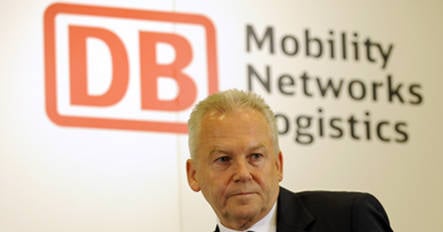“Give me 100 days in office, then I’ll give you a binding answer,” Rüdiger Grube told the newspaper.
The controversial attempt privatise a portion of the company and sell the shares on the stock market could also come next year or the year after, Grube, who came to the Bahn after a stint at the auto maker Daimler, said.
“In light of the financial and economic crisis, an initial public offering makes no sense at this time,” Grube told Bild. “But if things are hopefully looking up in 2010 or 2011, then everything will look different.”
The company came within weeks of selling of shares last fall, only to cancel the offering at the last moment as stock markets around the world began to collapse after the failure of Lehman Brothers.
Deutsche Bahn has to reduce costs sharply, Grube said, because of the collapse in freight traffic brought about by the recession. This year, the Bahn has carried 24 percent less cargo than in 2008. Grube said the company was trying to contain administrative costs and improve efficiency and productivity in order to remain profitable through the recession.
Grube promised that during his tenure, there would be no repeat the data and spying scandals that led to the ouster of his predecessor, Hartmut Mehdorn. He also promised a full investigation into the company’s actions, which included unauthorized exams of hundreds of thousands of workers’ records and monitoring some employees’ behaviour.
“Here we will completely, unhesitatingly and absolutely clarify [the scandals],” Grube said. “I promise that the Bahn will not take similar actions under my leadership.”



 Please whitelist us to continue reading.
Please whitelist us to continue reading.
Member comments